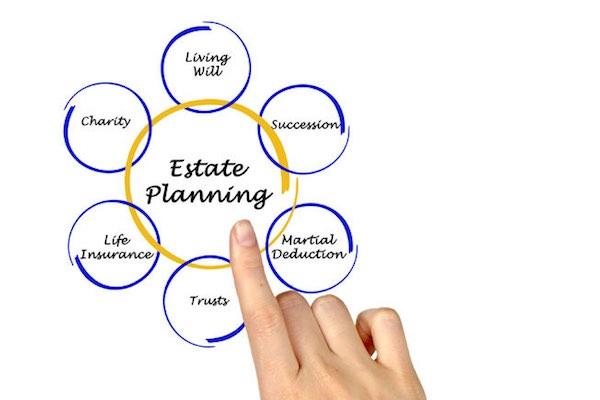Because the word “estate” is often used in conjunction with larger properties, some people believe they don’t really have an estate, and therefore don’t need to do any estate planning. But virtually everyone has an estate, and it consists of your home and any other real estate; your cars; money in your bank accounts, including your checking account; and your furniture and other personal possessions. It even includes your life insurance policies.
Estate planning involves deciding who will inherit each of these items and when. As just one example, you could leave an investment to a minor child of yours but, if you die before he or she reaches the age of 18 or 21 (or whatever other age you decide), you can arrange to have those monies held for a designated time period.
This type of planning is important, and the American Bar Association shares 10 reasons why. One of the most important involves providing for your immediate family. Couples, for example, will want to ensure that the surviving spouse has enough money; parents will want to arrange that, if they die before their children reach 18, their children will have loving guardians and enough money to provide a quality life, including pursuing their education. Without proper estate planning, courts would make these decisions for you.
Other reasons to plan your estate, the article shares, includes:
- Getting property to your beneficiaries as quickly as possible
- Creating a plan in case you become incapacitated, physically and/or mentally
- Minimizing expenses when transferring property
- Naming your executors/trustees
- Pre-arranging your funeral to reduce stress on your family when the time comes
- Supporting charities and causes important to you
- Reducing taxes
- Providing for people who need extra guidance
- Continuing your business without interruption
Estate Planning Documents
Wills are crucial. Without them, the government decides who gets what, with intestacy laws varying significantly from state to state. And yet, only about 50 percent of people in the United States has a will (and that doesn’t account for the number of people who have outdated wills).
CNN.com shares valuable information on wills and other important documents related to estate planning. Here are more specifics: Even after you make a will, you should review it periodically, especially when you experience major life changes, such as a wedding or divorce. Also review whom you have listed as beneficiaries for your retirement accounts, life insurance policies and more. Some people also form a trust, a legal term for placing asset-distribution conditions on your estate. A trust is typically created to minimize estate taxes, but it does not replace the need for a will, and a trust actually takes effect when created, not when you become deceased. Trusts do not need to go through probate court.
And, even though a living will sounds similar to a will, it is actually quite different. Also known as an advance medical directive, this document shares what degree of intervention you want when having medical issues and serves as your statement if you are unable to communicate your wishes.
Living wills also highlight a crucial element about estate planning – that it’s not just about determining what should happen after someone becomes deceased, but also about how a person wants to live as he or she navigates through medical issues.
Consult with an Experienced Estate Planning Attorney
Yes, there are do-it-yourself guides and templates available, but nothing replaces the knowledge and guidance of an experienced estate planning attorney — and members of our legal insurance plans have ready access to affordable, well-qualified attorneys.
Find more information about estate planning here. If you’re ready to talk about setting up a legal benefits plan for your employees, contact us online, call 1.800.356.LAWS or email us at info@www.uslegalservices.net.

